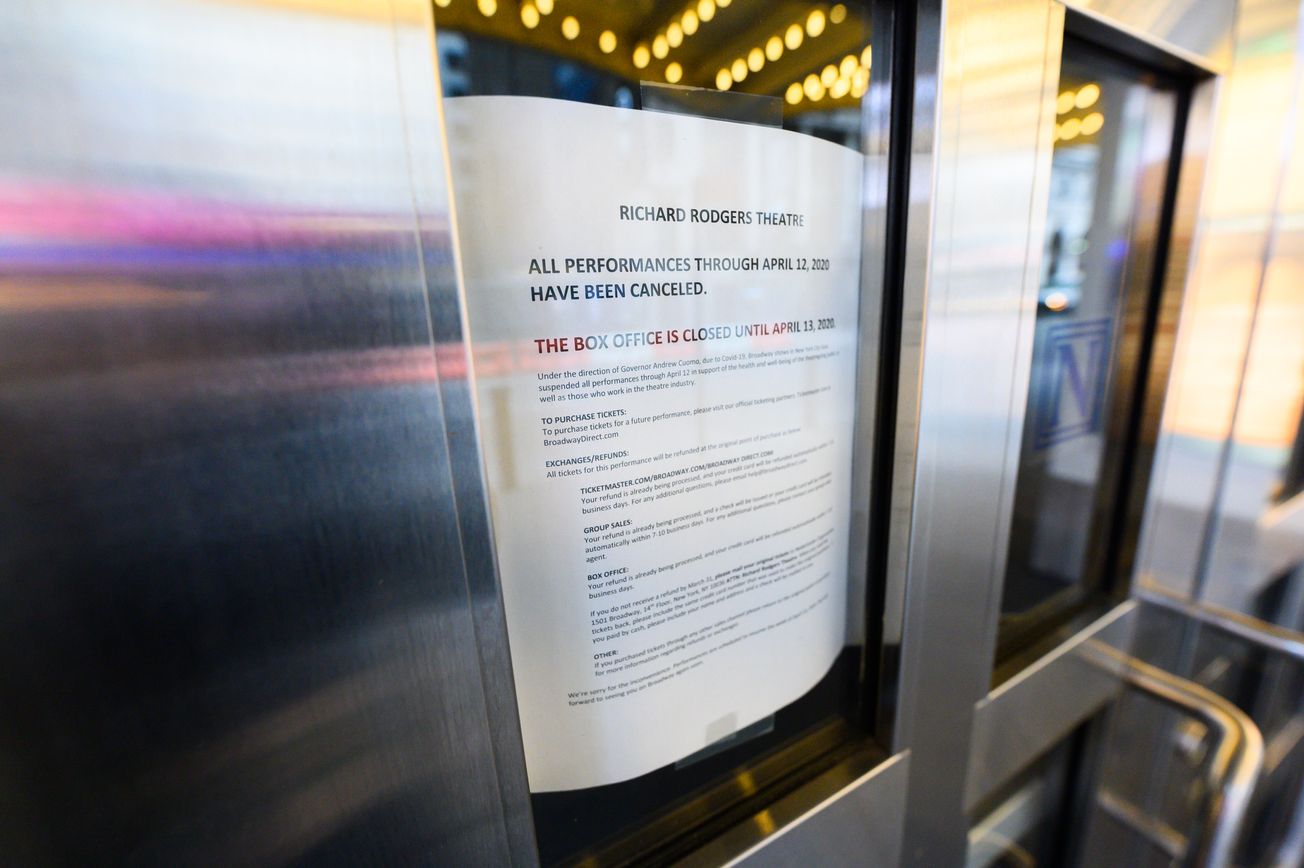As theaters on Broadway and across the country shut down due to coronavirus, freelance and full-time theater workers have been left with at least a month of uncertainty on how to pay their rent and bills.
And so the Internet stepped in.
Hours after the Broadway closure was announced on March 12, multiple members of the theater community began asking for the Venmo handles of out-of-work freelancers, hourly workers and theater artists so that people with the means could send money via the payment app. These individual efforts sprung up as unions petition for government relief and await word on whether their members will receive any payment from their employers during the shutdown.
Still, many artists were concerned these efforts may not be enough.
Jenna Clark Embrey, resident dramaturg at Signature Theatre; Laura Heywood, host of a Broadway-focused podcast; and freelance journalist Caitlin Galiz-Rowe each started Twitter threads that have together received nearly 500 responses as of March 19.
The Twitter threads began after Gov. Andrew M. Cuomo ordered Broadway to close its theaters on March 12 to help stop the spread of coronavirus. That order was subsequently followed by Mayor Bill de Blasio’s March 17 edict to close all theaters in the city, thereby affecting the majority of theater workers in New York.
Andrew Shade, founder of the marketing agency Broadway Black, responded to both Heywood’s and Embrey’s threads. Shade, who is also an actor, was in rehearsal for a production of “Dreamgirls” at Mill Mountain Theatre in Roanoke, Va., when he received word it would be canceled due to coronavirus restrictions.
On the business side, Shade said his marketing agency expects to keep at least one Off-Broadway contract for “All the Natalie Portmans” at MCC Theater. But he has lost thousands of dollars in other business deals.
Since responding to the Twitter threads, Shade has received piecemeal donations totaling approximately $145 that he said “allowed me to have groceries for the day or allowed me to pay my phone bill.”
“I’m very thankful and privileged that I do have resources,” Shade said. “I don’t know how long those resources, just for me, will even last because there’s nothing coming in.”
Outside of these grassroot campaigns, Broadway Cares/Equity Fights AIDS launched an emergency assistance fund with a goal of reaching $1 million in donations. Members of Actors’ Equity have also been asked to apply for unemployment benefits during the shutdown.
Still, for some, like director Max Friedman, who has worked on and off Broadway, the shutdowns exacerbated the difficulties of living paycheck to paycheck. In addition to directing work, his side jobs as a cook and a DJ have both ended.
“Even before the virus, my life in the arts has involved something of a month-to-month struggle to make enough money to support a life in New York,” Friedman wrote in an email to Broadway News. “Now, my work as a director of theatre, concerts, and cabaret has been put entirely on ice.”
The uncertain timeline of COVID-19 and of theater closures has also impacted his upcoming work. Friedman was meant to direct an Off-Broadway production scheduled to open in a few months. Now, he no longer knows whether it’s moving forward.
“If it goes according to plan, it would be the kind of opportunity that could change my life and launch my career,” he said. “Now, no one can really tell for certain if that production will even be possible. It’s really terrifying.”
Rainer Coloma, who took to Twitter to ask for financial support, also expressed uncertainty about the future. Coloma worked as a catering manager for a company that caters Broadway and Off-Broadway events and provides concessions to theater bars. His position was temporarily terminated at the time of the shutdown.
“The future seems pretty grim at the moment. I have enough money to pay my April bills, but anything beyond that, it’s hard to even think of,” Rainer wrote to Broadway News. “I’m applying for unemployment for assistance and in the meantime, trying to see if any of the grocery/pharmacy stores around me are looking for any extra hands.”
Other online fundraising efforts show the strain faced by theater artists around the globe.
A GoFundMe campaign by Shawn Escarciga, assistant director of the New York nonprofit arts organization Culture Push, and freelance artist Nadia Tykulsker had to cap the number of applicants at 525 only a few days after the fundraiser opened on March 12.
The website I Lost My Theatre Gigs, a database of in-need theater workers that allows benefactors to donate to individuals directly, had received more than 400 responses from artists and freelancers from across the U.S., the United Kingdom and Australia as of March 19.
As theater artists seek out aid, Heywood, a freelancer who had a potential paying job canceled and another suspended indefinitely because of coronavirus, said the mere fact of strangers reaching out has helped raise their spirits.
“I have heard from a handful of artists who have received up to $50 at a time from strangers; one actor was reduced to tears when he told me about it, and every single person I’ve heard from says the gesture means as much, if not more, than the money,” Heywood said.


























































